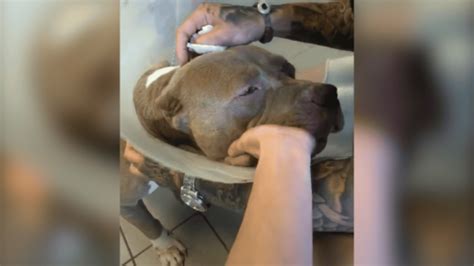
A cat in Thailand found itself in legal hot water after biting a woman, leading to a formal police “arrest” and prompting a wider discussion about pet owner responsibility and animal behavior. The incident has sparked debate about how to handle aggressive animals and the potential liabilities owners face.
Feline Felon Faces the Music: Thailand Grapples with Pet Owner Responsibility After Biting Incident
A domestic cat in Thailand has become the center of a peculiar legal situation after biting a local woman, resulting in what authorities are calling a formal “arrest.” While the incident may seem unusual, it has ignited a broader conversation about pet owner responsibility, animal behavior, and the appropriate measures for dealing with aggressive animals in the country.
According to local reports, the cat, whose name has not been released, bit the woman on her leg, causing a minor injury. The injured woman filed a complaint with the local police, who, in an unorthodox move, decided to “arrest” the feline. The arrest was largely symbolic, aimed at highlighting the seriousness of the situation and prompting the cat’s owner to take responsibility for their pet’s actions.
“The ‘arrest’ was a way to bring attention to the matter and encourage the owner to be more mindful of their pet’s behavior,” explained Police Chief Somchai, a local law enforcement official involved in the case. “It is crucial for pet owners to understand that they are responsible for the actions of their animals, especially when those actions result in harm to others.”
The cat was briefly taken into custody at the local police station, where it was given food and water. Authorities used the opportunity to contact the owner, informing them of the complaint and urging them to take steps to prevent similar incidents in the future. The owner, whose name has also been withheld, expressed remorse for the incident and agreed to pay for the woman’s medical expenses. They also pledged to ensure that the cat would undergo behavioral training to address its aggressive tendencies.
“We understand that cats, like any animal, can sometimes act unpredictably,” the owner stated in a formal apology. “However, as responsible pet owners, we must take all necessary precautions to protect the community from harm. We are committed to ensuring that this does not happen again.”
This incident raises several questions about the legal and ethical responsibilities of pet ownership, particularly in a country where pet ownership is on the rise. As more and more people in Thailand adopt cats and dogs, the potential for animal-related incidents also increases. The case of the biting cat serves as a reminder that pet owners must be vigilant in managing their animals’ behavior and taking steps to prevent harm to others.
Legal experts have weighed in on the matter, noting that while the “arrest” of the cat was largely symbolic, the owner could face legal consequences if the woman had suffered more severe injuries. Depending on the severity of the injury and the owner’s history of managing their pet’s behavior, they could be held liable for medical expenses, lost wages, and even emotional distress.
“In many jurisdictions, pet owners can be held responsible for the damages caused by their animals,” explained legal analyst Anya Sharma. “This responsibility extends to ensuring that the animal is properly trained, controlled, and prevented from posing a threat to others. Failure to do so can result in significant legal repercussions.”
The incident has also sparked a broader debate about animal rights and the welfare of pets in Thailand. Animal rights activists have emphasized the importance of providing proper care and training for pets, as well as addressing the underlying causes of aggressive behavior.
“Aggression in cats can often be a sign of underlying stress, anxiety, or medical issues,” said animal behaviorist Dr. Preeya Thanaporn. “It is crucial for pet owners to understand their animals’ behavior and provide them with the support and resources they need to thrive. This includes providing proper socialization, enrichment, and veterinary care.”
The “arrest” of the biting cat in Thailand serves as a unique and thought-provoking case study in pet owner responsibility and animal behavior. It highlights the importance of taking proactive measures to prevent animal-related incidents and ensuring that pet owners are held accountable for the actions of their animals. As pet ownership continues to grow in popularity, it is crucial for societies to develop clear legal frameworks and ethical guidelines for managing pets and protecting the community from harm.
The local community has expressed mixed reactions to the incident. Some residents support the police’s actions, viewing it as a necessary step to ensure public safety. Others believe the “arrest” was an overreaction and that the situation could have been handled more discreetly.
“I think it’s good that the police are taking this seriously,” said local resident Somchai Lee. “We need to send a message that pet owners are responsible for their animals’ behavior. If you can’t control your pet, you shouldn’t have one.”
However, other residents feel that the incident was blown out of proportion.
“I think the police could have handled this better,” said Anya Wong, another local resident. “The cat probably didn’t mean to bite the woman. It’s just an animal. The owner should have been given a warning instead of having their cat ‘arrested.'”
The incident has also drawn attention to the issue of stray animals in Thailand. Many stray cats and dogs roam the streets, posing a potential threat to public health and safety. Animal welfare organizations have called on the government to implement more effective programs for managing the stray animal population, including spaying and neutering initiatives and adoption campaigns.
“The problem of stray animals is a complex one, but it needs to be addressed,” said animal welfare advocate Kasem Somsri. “We need to provide more resources for animal shelters and promote responsible pet ownership. By working together, we can create a safer and more compassionate community for both humans and animals.”
The case of the biting cat in Thailand is a reminder that pet ownership comes with significant responsibilities. Pet owners must be prepared to provide their animals with proper care, training, and supervision. They must also be aware of the potential risks associated with owning a pet and take steps to prevent harm to others. By embracing responsible pet ownership, we can create a society where both humans and animals can thrive.
The incident also highlights the cultural nuances surrounding human-animal interactions in Thailand. In Thai culture, animals are often viewed with a mix of respect and practicality. While pets are often cherished members of the family, they are also expected to behave appropriately and not cause harm to others. This cultural context helps to explain the public’s mixed reactions to the “arrest” of the biting cat.
Furthermore, the incident has sparked conversations about the role of social media in shaping public perceptions of animal-related incidents. The story of the “arrested” cat quickly went viral on social media, attracting both support and criticism. This highlights the power of social media to amplify animal-related news and influence public opinion on animal welfare issues.
The Thai government has taken note of the incident and is considering implementing new regulations to address pet owner responsibility and animal control. These regulations may include stricter penalties for pet owners whose animals cause harm to others, as well as increased funding for animal shelters and spaying/neutering programs.
“We are committed to ensuring the safety and well-being of both humans and animals in Thailand,” said a government spokesperson. “We are working closely with animal welfare organizations and legal experts to develop comprehensive regulations that address the challenges of pet ownership and animal control.”
The case of the biting cat in Thailand is a complex and multifaceted issue that touches on a variety of important themes, including pet owner responsibility, animal behavior, animal rights, cultural norms, social media, and government regulation. It serves as a valuable case study for understanding the challenges and opportunities associated with human-animal interactions in a rapidly changing world. As societies become increasingly urbanized and pet ownership becomes more prevalent, it is crucial to develop thoughtful and effective policies that promote the well-being of both humans and animals.
The incident involving the “arrested” cat also sheds light on the importance of early socialization and training for pets. Cats that are properly socialized and trained from a young age are less likely to exhibit aggressive behavior. Pet owners should invest in professional training or consult with animal behaviorists to address any behavioral issues that may arise.
Moreover, the case underscores the need for greater public awareness of animal behavior. Many people do not understand the signs of stress or anxiety in cats, which can lead to misunderstandings and potentially dangerous situations. By educating the public about animal behavior, we can help prevent animal-related incidents and promote safer interactions between humans and animals.
The Thai government is also exploring the possibility of implementing a national pet registry. Such a registry would help to track pet ownership and ensure that pet owners are held accountable for the actions of their animals. It would also facilitate the return of lost pets to their owners.
The incident in Thailand serves as a reminder that pet ownership is not just about providing food and shelter; it is also about taking responsibility for the animal’s behavior and ensuring that it does not pose a threat to the community. By embracing responsible pet ownership, we can create a more harmonious and compassionate society for both humans and animals.
In conclusion, the “arrest” of the biting cat in Thailand is a unique and thought-provoking event that has sparked important conversations about pet owner responsibility, animal behavior, and the legal and ethical implications of pet ownership. It highlights the need for proactive measures to prevent animal-related incidents and for clear legal frameworks and ethical guidelines for managing pets. As pet ownership continues to grow in popularity, it is crucial to prioritize the well-being of both humans and animals and to create a society where they can coexist peacefully and safely. This includes investing in education, training, and responsible pet ownership programs to ensure a better future for all.
The incident also highlights the role of empathy and compassion in our interactions with animals. While it is important to hold pet owners accountable for their animals’ behavior, it is equally important to understand the underlying causes of that behavior and to treat animals with kindness and respect. By fostering a culture of empathy and compassion, we can create a more humane society for all living beings.
The long-term impact of this incident remains to be seen. However, it has undoubtedly raised awareness of the importance of responsible pet ownership and animal welfare in Thailand. It is hoped that this awareness will lead to positive changes in policy and practice, resulting in a safer and more compassionate society for both humans and animals.
The situation also brings to light the importance of proper veterinary care. Regular check-ups can help identify and address any underlying medical conditions that may be contributing to aggressive behavior in cats. Pain or discomfort can sometimes cause a cat to become more irritable and prone to biting. Addressing these medical issues can significantly improve a cat’s temperament and overall well-being.
Furthermore, the incident serves as a reminder that children should be educated about how to interact safely with animals. Children often lack the understanding and experience to recognize when an animal is feeling threatened or uncomfortable. Teaching children how to approach and handle animals gently and respectfully can help prevent accidental bites and scratches.
The case of the biting cat has also prompted discussions about the role of local communities in promoting responsible pet ownership. Community-based initiatives, such as neighborhood watch programs and pet adoption events, can help to raise awareness of animal welfare issues and encourage residents to take an active role in protecting animals.
The “arrest” of the cat in Thailand has resonated with people around the world, highlighting the universal importance of responsible pet ownership and animal welfare. It serves as a reminder that we all have a role to play in creating a more humane and compassionate society for both humans and animals.
The incident underscores the importance of having clear and consistent policies for dealing with animal-related incidents. When policies are unclear or inconsistently enforced, it can lead to confusion and frustration among pet owners and community members. Developing and implementing clear policies can help to ensure that animal-related incidents are handled fairly and effectively.
The case also highlights the importance of providing adequate resources for animal control and animal welfare organizations. These organizations play a vital role in protecting animals and promoting responsible pet ownership. By providing them with the funding and support they need, we can help to ensure that they are able to effectively carry out their mission.
In addition to the legal and ethical considerations, the incident also raises practical questions about how to manage aggressive animals. In some cases, behavioral training may be sufficient to address the problem. In other cases, it may be necessary to re-home the animal or, as a last resort, euthanize it. These decisions should be made on a case-by-case basis, taking into account the animal’s temperament, the severity of its behavior, and the potential risks it poses to the community.
Ultimately, the case of the biting cat in Thailand is a reminder that responsible pet ownership is a shared responsibility. It requires the cooperation of pet owners, government officials, animal welfare organizations, and community members. By working together, we can create a society where both humans and animals can thrive.
The incident serves as a catalyst for promoting responsible pet ownership through education and community engagement. Creating accessible resources and workshops on pet care, training, and understanding animal behavior can empower pet owners to be more responsible. Similarly, engaging community members in initiatives that promote animal welfare can create a culture of empathy and respect for animals.
The incident also highlights the need for robust enforcement of existing animal welfare laws. While many countries have laws in place to protect animals, these laws are often poorly enforced. Strengthening enforcement mechanisms and increasing penalties for animal cruelty can help to deter abuse and neglect.
The case of the biting cat underscores the importance of collaboration between government agencies, animal welfare organizations, and veterinary professionals. Sharing information and resources can help to improve animal welfare outcomes and prevent animal-related incidents.
The incident emphasizes the need for ongoing research into animal behavior. By better understanding the factors that contribute to aggression in animals, we can develop more effective strategies for preventing and managing these behaviors.
Frequently Asked Questions (FAQs)
1. What exactly happened in the “arrest” of the cat in Thailand?
A cat in Thailand bit a woman, leading to a formal police “arrest.” This was largely symbolic, aimed at highlighting the seriousness of the situation and prompting the cat’s owner to take responsibility for their pet’s actions. The cat was briefly taken into custody at the local police station.
2. What was the purpose of the cat’s “arrest”?
The “arrest” was intended to bring attention to the matter and encourage the owner to be more mindful of their pet’s behavior. It served as a reminder that pet owners are responsible for the actions of their animals, especially when those actions result in harm to others.
3. What consequences could the cat’s owner face?
While the “arrest” of the cat was symbolic, the owner could face legal consequences depending on the severity of the injury. They could be held liable for medical expenses, lost wages, and even emotional distress. Furthermore, they are expected to ensure the cat undergoes behavioral training.
4. What does this incident say about pet ownership in Thailand?
The incident highlights the growing importance of responsible pet ownership as pet ownership becomes more popular in Thailand. It raises questions about legal and ethical responsibilities of pet owners and the need for proactive measures to prevent animal-related incidents.
5. What can pet owners do to prevent similar incidents from happening?
Pet owners can prevent similar incidents by providing proper care and training for their pets. This includes proper socialization, enrichment, veterinary care, and addressing any signs of stress or anxiety. It also involves taking proactive measures to prevent harm to others.









